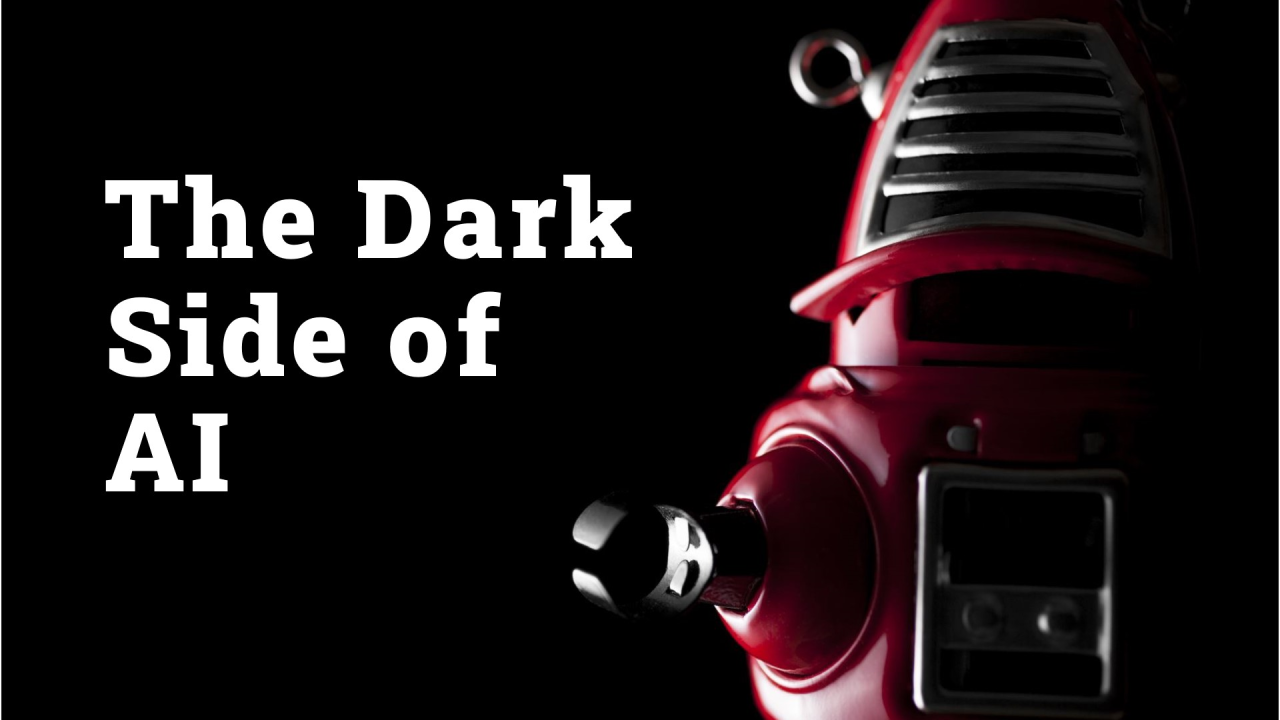The Dark Side of AI Nobody's Talking About

Artificial intelligence (AI) has made incredible strides in recent years. From virtual assistants that can manage your daily tasks to self-driving cars, it's easy to focus on AI's positive impact on our lives. Every day, new breakthroughs promise to make life easier, businesses more efficient, and healthcare more accessible. However, behind the excitement and the shiny promises lies a side of AI that doesn't get as much attention—a side with real societal implications.
We're not here to undermine the advancements or argue against progress. Instead, it's about taking a deeper look at the risks and ethical issues surrounding AI that don't often make headlines. These are concerns that, if ignored, could lead to unintended consequences. From biased algorithms to job displacement, AI's dark side needs to be recognized so that we can navigate its future responsibly.
The Bias Problem in AI

One of the less-discussed issues is bias within AI systems. AI learns from data, and if the data it's trained on is biased, the outcomes will also be biased. This problem has already shown itself in several instances. For example, an AI hiring algorithm may favor male candidates over female ones simply because it was trained on historical hiring data that reflected a male-dominated workforce.
Similarly, AI used in law enforcement has been criticized for making biased decisions, such as predicting higher crime rates in minority communities. When decisions with far-reaching consequences are made, the stakes are high. AI systems need to be more transparent and better regulated to prevent discrimination.
Real-World Example:
Consider the case where facial recognition technology has been found to perform worse on people with darker skin tones. This might lead to wrongful arrests or unfair treatment based on an algorithm's inaccurate results. These examples illustrate how AI, if unchecked, can perpetuate and even worsen existing societal biases.
Privacy Invasion and Data Security

Another significant issue that goes unnoticed is the invasion of privacy. AI systems rely heavily on vast amounts of personal data to function. Data is collected whenever we use a smart device, browse the internet, or interact with digital services. While this data collection allows AI to deliver personalized services, it also raises privacy concerns.
Imagine a world where your personal data is being tracked not just by corporations but also by governments or malicious hackers. The risk isn't just about your search history being used for targeted ads—it's about the potential for your personal and sensitive information to be used without your consent.
The Cambridge Analytica scandal highlighted how AI-powered tools could be used to manipulate voters by accessing their personal data. This is just one example of how AI and data misuse can threaten democracy, privacy, and individual rights.
Job Displacement and Economic Inequality

Automation through AI is already reshaping industries, from manufacturing to customer service. While AI can boost productivity and reduce business costs, it comes with a downside: job displacement. Many traditional jobs done by humans are now being automated, and the speed at which this happens raises concerns about future employment.
Entire industries may soon see more machines than humans in the workplace. Jobs in transportation, retail, and even journalism are being impacted by AI's ability to perform tasks quicker and more efficiently. This creates a divide where skilled tech workers thrive while others struggle to find new roles in an AI-driven economy.
Solution Ideas:
While AI-driven job displacement is a genuine concern, governments and companies must invest in reskilling programs. Preparing workers for the jobs of the future could help bridge this gap. Public policy must ensure that AI serves as a tool for equality, not division.
The Threat of AI Weaponization

One of the darkest aspects of AI development is its potential for weaponization. The idea of autonomous weapons—machines that can make decisions about life and death without human intervention—sounds like science fiction, but it is quickly becoming a reality.
AI-driven drones and weapons could fundamentally change warfare, making conflicts deadlier and more challenging to control. Once released, these autonomous systems could act unpredictably, and the ethical implications are staggering.
There is an urgent need for international discussions about the regulation of AI in military applications. AI-powered weapons could escalate conflicts or even trigger accidental wars without proper oversight. This aspect of AI development demands attention before it becomes a dangerous reality.
AI Addiction and Mental Health Concerns

The influence of AI isn't just in automation or privacy—it's also affecting our mental health. Algorithms that power social media platforms, streaming services, and gaming are designed to keep users engaged for as long as possible. While this may benefit companies, it can lead to addiction in users.
AI tailors content based on your preferences, creating an environment where it becomes harder to pull away from your devices. This can negatively impact mental health, leading to issues like anxiety, depression, and social isolation.
Example:
Think about how platforms like TikTok or YouTube use AI to feed you content you can't stop watching. While entertaining, this can quickly become an unhealthy habit of constant scrolling, leaving people feeling drained, anxious, or inadequate.
Lack of Accountability in AI Decisions

One of the most alarming issues with AI is the need for more accountability. When an AI system makes a decision—whether in hiring, healthcare, or justice—who is responsible when something goes wrong? AI is often seen as a "black box," where the decision-making process is so complex that even its creators may not fully understand it.
This raises serious concerns about accountability. Who is to blame if an AI system wrongly denies someone a loan or mistakenly diagnoses a patient? The programmer? The company that deployed the system? The AI itself? The absence of clear accountability can lead to harmful consequences for those affected.
Ethical Concerns in Autonomous Systems

Self-driving cars, healthcare robots, and other autonomous systems offer great potential but also raise ethical concerns. How do you program a car to make moral decisions in a split-second? Should it prioritize the driver's safety over pedestrians? These are the kinds of ethical dilemmas that developers face when designing autonomous AI systems.
The lack of clear answers to these moral questions highlights the complexities of AI development. It also underscores the importance of involving ethicists, lawmakers, and technologists in AI discussions to ensure that these systems are designed with humanity in mind.

AI is a powerful tool with the potential to transform society for the better. But, like any tool, it carries risks that must be managed. The dark side of AI—bias, privacy invasion, job displacement, weaponization, mental health concerns, lack of accountability, and ethical dilemmas—demands more attention than it's currently getting.
As AI continues to evolve, we must have open conversations about these risks and work toward solutions that ensure AI serves humanity rather than controls it. Only by addressing these concerns can we harness the full potential of AI while minimizing its harm.





